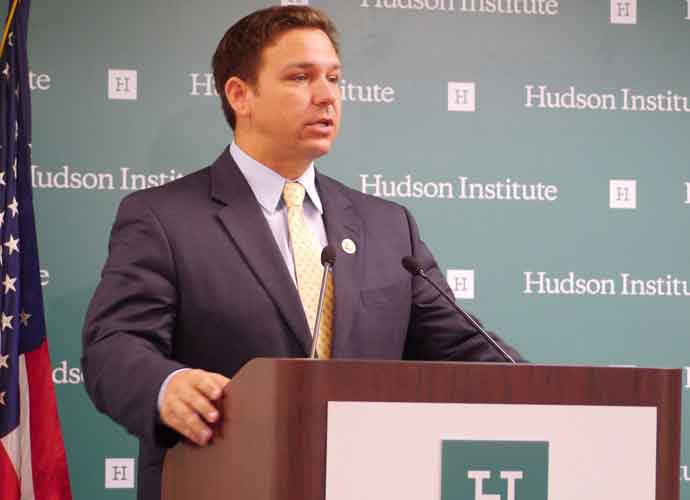Russia Hacked Voting Registration Files In Two Florida Counties, Gov. Ron DeSantis Reveals
Russian hackers were successfully able to access voter registration files of two Florida counties during the 2016 election, as confirmed by state Gov. Ron DeSantis. The Republican governor confirmed the news after a meeting he had last week with the Department of Homeland Security and FBI.
Speaking at a press conference on Tuesday, DeSantis did not identify the two counties Russia hacked, citing a non-disclosure agreement he had to sign with the FBI. Helen Ferré, a spokeswoman for DeSantis, admitted how this “whole situation is unprecedented.” Barbara Petersen, the president of the First Amendment Foundation, observes how prior legal rulings require Florida’s politicians to publicly disclose information on documents that are shared with them, though it may not be applicable in this case if the information was only relayed to DeSantis verbally.
Russia’s interest in Florida is well-documented, with Special Counsel Robert Mueller discovering through his probe that at least one county situated in the Sunshine State had been hacked. It was a revelation that shocked Floridan officials, who insisted Russian hacking efforts were unsuccessful. Florida representatives also maintained they would amp up election security in preparation for the 2020 elections.
According to DeSantis, Russia was unable to change the vote tallying or any of the information they accessed, but admitted Russians were able to harvest citizens’ voter information. “There was no manipulation, or anything, but there was voter data that was able to be got,” DeSantis said.
Subscribe to our free weekly newsletter!
A week of political news in your in-box.
We find the news you need to know, so you don't have to.
SLIDESHOW: TOP DEMOCRATS RUNNING FOR PRESIDENT IN 2020
In a written statement, the FBI confirmed Russia was able to access voter information. “The FBI provided information involving the attempted intrusion into Supervisor of Elections networks throughout the state,” the Bureau wrote. “The FBI also provided assurance that investigators did not detect any adversary activity that impacted vote counts or disrupted electoral processes during the 2016 or 2018 elections.” Currently, bureau officials are slated to meet with Sen. Rick Scott (R-Fla.) on Wednesday and Florida’s congressional delegation on Thursday.
Notably, Sen. Marco Rubio (R-Fla.) recently acknowledged Russia’s intrusion into Florida in an interview. “Since April 2018, I have repeatedly voiced concerns about overconfidence of some Florida election officials, and have urged them to take the threat of cyberattack seriously,” Rubio said in a Tuesday statement. “These are nation state threats with significant resources and assets at their disposal. Florida is a major swing state that often decides presidential elections, making us a top target.”
During the 2018 midterm elections, then-Sen. Bill Nelson aired concerns about voter security, spurring Scott to slam him for being “irresponsible.” Scott went on to defeat Nelson in November. Nelson did not comment about how his concerns were proven justified, instead citing a statement he issued in April. “The Mueller Report makes clear why we had to take that important step as well as my verbal warnings thereafter,” Nelson had written.
State lawmakers have currently prepared about $2.8 million for cybersecurity measures, although they have yet to approve funding for a cybersecurity team.
Get the most-revealing celebrity conversations with the uInterview podcast!








Leave a comment